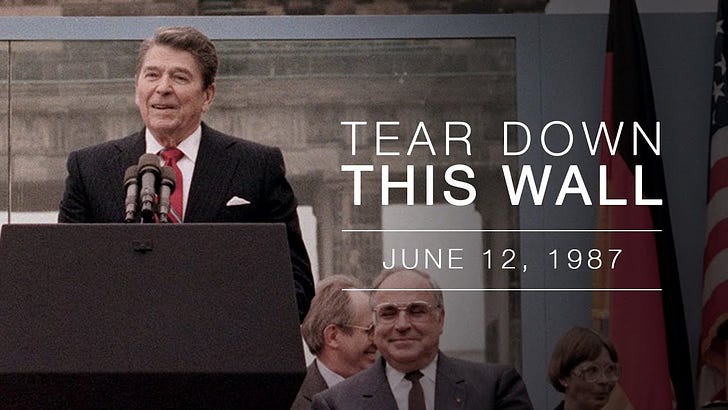We have our first Zoom office hours coming up this week! Please mark your calendars to join your classmates from 11 a.m. - 12 p.m. EST this Thursday, December 8 to meet me and each other, continue up the class discussion, and generally chat and have a good time. The Zoom link will be sent to paid subscribers at 8 a.m. Thursday morning. (NOTE: I will try to change up the times as we go along to make the office hours accessible to people’s various schedules, so if you can’t make this one, there will be more!)
Now for the assignment for next week: Please watch the below video and, if you like, comment on the discussion question underneath — we’ll use the video and discussion question as a jumping off point for class.
Discussion Question:
Do you consider President Reagan’s speech “propaganda”? Why or why not?



The question can't be answered until we agree on a definition of propaganda. Must there be deception? Must it benefit the speaker? Is it enough that it present only one point of view? Must there be emotional manipulation? Is a Burma Shave sign propaganda? What about Mrs. McKinnon's third-grade class in American history?
The speech was superbly written and skillfully read by an attractive man with a resonant voice to an audience already inclined to hear its message. The message itself was uplifting, and the speaker undoubtedly believed everything he said. But it played on emotions, promised a chicken in every pot, blamed the East for all woes, and took advantage of the deplorable human drive to divide into teams with different-colored jerseys.
When I watched this video I was it occurred to me how different my perception is today as opposed to 35 years ago. Then, I saw our president standing up to the oppressions of the soviets. Today, I see propaganda laced throughout this speech. Was I naive then? Probably. Reagan told the world that the freedoms enjoyed by the west were also desired by those in the east. After all everyone wants what we have don’t they? This speech was designed to show strength and to persuade the world to view us as the ones who are right and the soviets as the ones denying the East Germans. He gave ample examples of our good while being forceful. In the end the speech was persuasive propaganda.